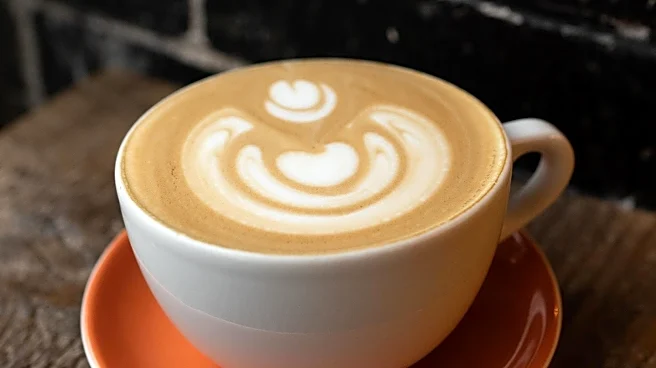What's Happening?
A recent survey conducted by WalletHub has identified Portland, Oregon, as the leading city for coffee enthusiasts in the United States. The study, released in honor of National Coffee Day, evaluated 100 of the most populated U.S. cities based on 12 key metrics, including the number of affordable coffee shops, average coffee prices, and the percentage of the population that consumes coffee. Portland topped the list with a score of 71.09, largely due to its high number of affordable and highly-rated coffee shops. In contrast, New York City did not make it into the top 20, ranking 36th with a score of 50.23. The survey highlighted the importance of affordability, especially as coffee prices are expected to rise due to factors like inflation and climate issues affecting coffee production in Brazil.
Why It's Important?
The findings of this survey have significant implications for coffee consumers and businesses across the U.S. Portland's top ranking underscores the city's thriving coffee culture and its ability to offer quality coffee experiences at affordable prices. This could attract more coffee enthusiasts and potentially boost local businesses. Conversely, New York's lower ranking may prompt coffee shops in the city to reassess their pricing strategies and offerings to remain competitive. The anticipated increase in coffee prices due to external economic factors could further impact consumer behavior and spending patterns, influencing the coffee market dynamics in major cities.
What's Next?
As coffee prices are projected to rise, cities like New York may need to adapt by exploring cost-effective solutions to maintain consumer interest. Coffee shops might consider diversifying their product offerings or enhancing customer experiences to justify higher prices. Additionally, cities that ranked lower in the survey could use these insights to improve their coffee culture by increasing the availability of affordable, high-quality coffee options. The survey results may also encourage other cities to conduct similar studies to better understand and cater to the preferences of their coffee-drinking populations.












